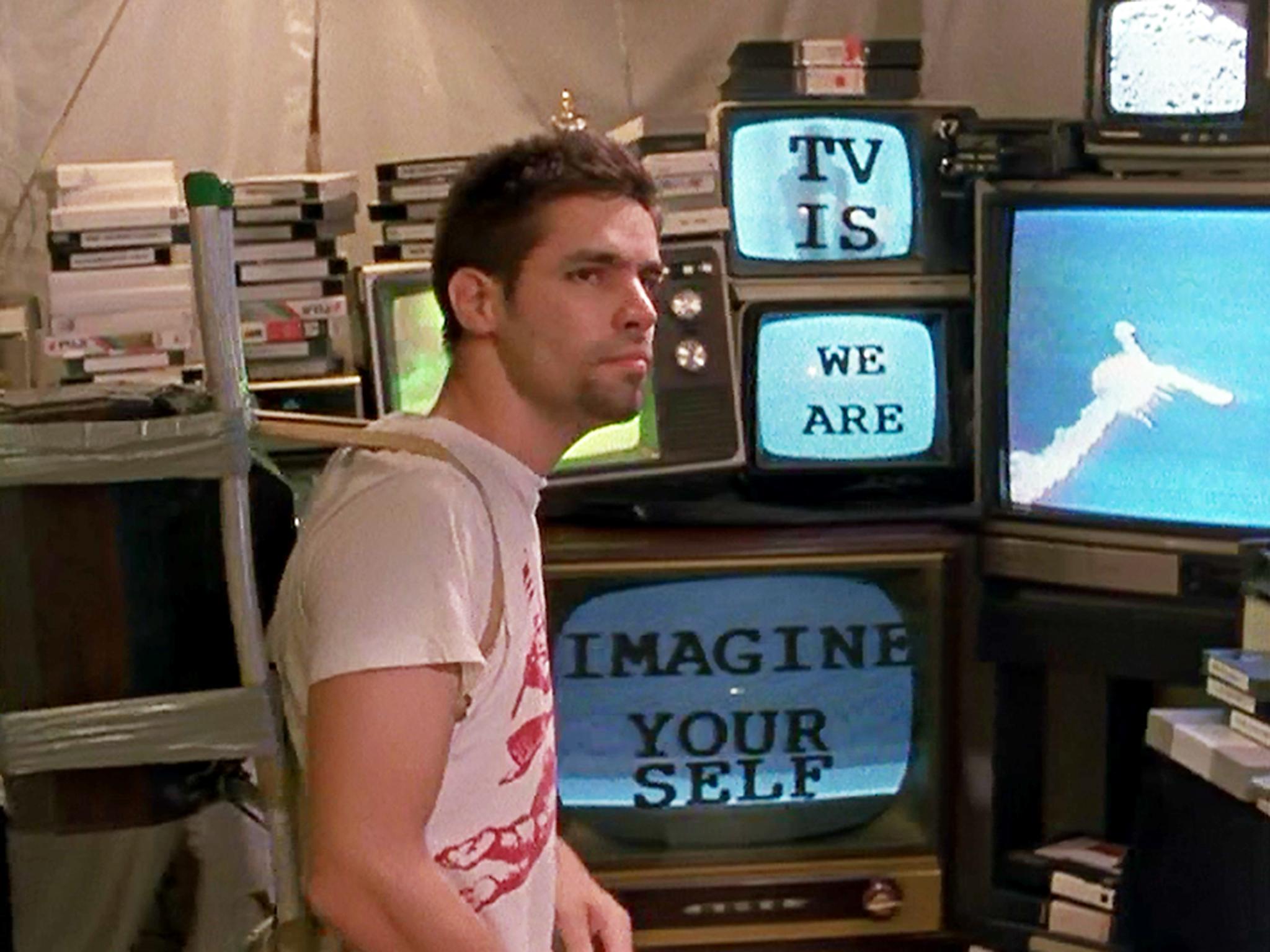Millennials and boomers don't have a gripe with each other, it's generation X they hate
Generation X has united the boomers and the millennials and given them a common enemy to glower at. And maybe our response to that, says David Barnett, is whatever!

Your support helps us to tell the story
From reproductive rights to climate change to Big Tech, The Independent is on the ground when the story is developing. Whether it's investigating the financials of Elon Musk's pro-Trump PAC or producing our latest documentary, 'The A Word', which shines a light on the American women fighting for reproductive rights, we know how important it is to parse out the facts from the messaging.
At such a critical moment in US history, we need reporters on the ground. Your donation allows us to keep sending journalists to speak to both sides of the story.
The Independent is trusted by Americans across the entire political spectrum. And unlike many other quality news outlets, we choose not to lock Americans out of our reporting and analysis with paywalls. We believe quality journalism should be available to everyone, paid for by those who can afford it.
Your support makes all the difference.Back in 1991, Richard Linklater’s movie Slacker was released. It was a laconic, meandering, plotless film which couldn’t even be bothered to name its characters properly… in the credits they were called things like “Hit and Run Son” or “Walking to Coffee Shop”. Slacker took place over a single day in Austin, Texas, and the camera lazily passed in and out of the lives of twentysomethings dangling from loose ends in their lives. Witness this exchange:
Dairy Queen Photographer: “So, what? Do you fancy yourself as some sort of artist or what?”
Anti-Artist: “No, I'm an anti-artist.”
Dairy Queen Photographer: “Oooooh, one of those neo-poseur types that hangs out in coffee shops, and... Doesn't do much of anything. Yeah.”
Yeah. Last month I wrote about generation X, people like me born between the baby boomers and the millennials. I suggested that while those two age demographics were slugging it out about who had things worse, it was generation X who were now, in their forties and fifties, in a position to rise up and save the day. The piece got a lot of traction and is still being shared about. Some saw it as a manifesto, and I really do hope it ignites people into action. Just as many readers were outraged, blamed generation X for the lack of opportunities available to the millennials (those born, roughly around 1982 or later) and more than one person commented along the lines of “what have generation X ever done for us? They were just a bunch of slackers. ”
For a long time, the terms generation X and slacker went hand in hand. As crystallised by Linklater’s movie, we were the young people who came of age in the late Eighties and Nineties who were aimless, feckless, drifting. The neo-poseur types who hung out in coffee shops and didn’t do much of anything. Yeah? No. Why did they call us slackers? Because we didn’t want what our parents wanted. We didn’t want the jobs-for-life, we didn’t want to work half a century in the same place with only a carriage clock and a “Don’t let the door hit your arse on the way out” at the end of it. We didn’t want to “settle down” by the time we were 20, and wear the same style of clothes our parents did.

And for that they thought we were just plain lazy. The problem was, we didn’t really know what we wanted… because it hadn’t been invented yet. We didn’t know it, but we were ahead of our time. The internet was going to come along and give generation X the tools to succeed, but back in the early 1990s that was just something out of cyberpunk novels. So we kicked back and waited to see what would happen.
“I think it’s because at the beginning of the nineties we saw so much of the establishment breaking down around us and not making any sense we had no desire to be a part of it, ” says Tiffanie Darke. Darke is the author of Now We Are 40: Whatever Happened To Generation X, just published by Harper Collins. She points out that back then we had no desire to “do well for ourselves”.

We called the acid house years The Second Summer of Love. We were like hippies, if hippies had been cool. Darke says: “The crash at the end of the 1980s proved that the pursuit of money was just completely fruitless and vulgar. Remember how much we reviled yuppies, Harry Enfield’s Loadsamoney – even “business” was seen as unattractive. It was bit Arthur Daley, or for boring people in suits. ”
Suits we definitely didn’t want. We wanted plaid shirts and Kurt Cobain cool, we wanted hooded tops and baggy jeans. We wanted to fly long-haul and come back festooned with beads and necklaces. The Eighties had been gloss and glamour, ostentatious and overt displays of wealth and status. Because we turned our backs on that, they thought we had no ambition. “We were in recession, the culture was dominated by grunge, those supermodels of the Eighties – the glossy polished superwomen such as Linda, Christy and Cindy were all over, and in came the waif Kate Moss,” says Darke. “A slightly dirty, snaggle-toothed girl from Croydon. Everything was a total reaction to the brash, acquisition driven gloss of the Eighties. ”
But did we really slack? No, says Darke: “Slackers was really just about a change of direction. A new generation seeking to redefine itself away from the old one, trying to find new paths and a new lifestyle. We didn’t want to be boxed in by a ruling class that was seeing out its dying days. “Also the common mistake about being a slacker is that you didn’t want to work hard, which was not the case at all – I think generation X is one of the hardest working generations, certainly now when they are balancing families and a 24/7 work culture. It was just we chose to work for passion not money, and at the time the welfare state was set up in such a way where you could do that – you could sign on while you worked on your novel or practised with your band. This was the reason why the Nineties was such a fertile period for the arts and culture, the early Nineties with their political and cultural unrest and the welfare state and free arts education was the perfect incubator for all that. ”
But even generation X knew the party couldn’t last forever, and by the mid-to-late Nineties we found ourselves in a world where the internet had arrived and was expanding and growing at a rate nobody could get a grip on. And this was what we’d been waiting for. This was something the boomers were still fearful and suspicious of, in the way that Victorians thought travelling on the modest velocities afforded by the first steam trains would actually kill them. Suddenly being in business was, as Darke says, “cool and hip”. It was OK to make money, because we were doing it the right way, with heart and soul and creativity.

Of course, not all of us went off to Goa to find ourselves, we didn’t all become dotcom millionaires overnight, most of us still sweated it out working for someone else. But we knew that things had changed. We knew that there were opportunities there, if we could just snatch them. We knew that our generation was fomenting a revolution. I mean, I could let “Having a Breakthrough Day” from Slacker have her say: “I've had a total recalibration of my mind, you know. I mean, it's like, I've been banging my head against this 19th-century type, um, what? Thought mode? Construct? Human construct? Well, the wall doesn't exist. It's not there, you know. I mean, they tell you, look for the light at the end of the tunnel. Well, there is no tunnel. There's just no structure. The underlying order is chaos. ”
Or I could just say this. What I do find curious, and indeed funny, is that the term slacker was really coined by the boomers because they just couldn’t understand generation X. And now it’s being used in an equally derogatory way by the millennials. Maybe both those groups don’t really have a gripe with each other. Maybe they have it with us. Maybe generation X has united them with a common enemy to glower at. And maybe, because generation X, slackers, call us what you want, are actually the people who get on with things, who change the world, while everyone else plays the blame game, maybe our response to that is just like… whatever.
Join our commenting forum
Join thought-provoking conversations, follow other Independent readers and see their replies
Comments